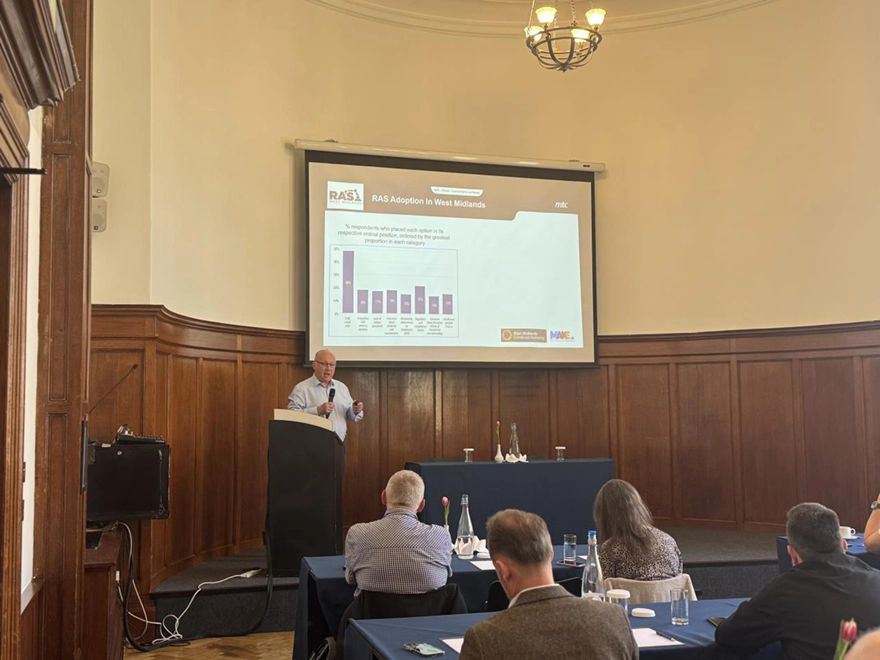
The West Midlands, a powerhouse of productivity and innovation, is set to undergo a robotics and autonomous systems (RAS) revolution.
Make UK’s recent study into robotics and automation identified that 59% of respondents from the region plan to expand their RAS usage within the next three years. The
West Midlands RAS Cluster, a collaborative group comprising industry, suppliers, academic institutions, and local authorities, has called upon UK industry to follow its lead and connect resources to secure a brighter future for UK manufacturing on the global stage.
Professor Mike Wilson, chief automation officer at
the Manufacturing Technology Centre (MTC) in Coventry and founding partner of the West Midlands RAS Cluster, said: “Labour shortages, rising national insurance and operational costs are powering the need for much greater use of robot automation. In addition, new pressures are coming from the instability of global trade relationships, which are driving a need for reshoring manufacturing to the UK. While the West Midlands boasts a heavily industrialised infrastructure, a general lack of cohesion around the country is preventing robotics from being embraced throughout the whole supply chain. Our mission is to fix that.”
The West Midlands RAS Cluster was founded by the MTC and the
University of Birmingham in order to accelerate adoption of robotics and autonomous systems across the West Midlands by aligning industry, suppliers, academia, and Government.
Knowledge-sharingProfessor Wilson continued: “Working together and knowledge-sharing are vital tools to unlocking the full potential of robotics in the UK. We have a couple of events coming up in June that will kick start our segment-specific support for robotics and automation businesses and as we start to plan for the long term, we will be looking to engage stakeholders from across the UK and encourage them to gather in one place to solve problems together in an open forum.”
It is not just industry stakeholders that must prioritise the adoption of RAS technologies. The UK Government’s support is crucial for boosting productivity, enhancing competitiveness, and driving economic growth. The global robotics technology market is projected to surge to £283 billion by 2032 and for the UK to become an integral part of that.
Professor Wilson is calling on the Government for support around: an awareness programme to demonstrate the need for greater adoption and dispel myths around cost and ease of implementation and operation; and a vendor-independent demonstrator facility to overcome fears and gain greater acceptance. It will include typical examples of robot automation for manufacturers to try out RAS technology and bring their parts to test and independent support through the procurement process. This will help businesses in key areas such as selecting the most appropriate tasks for trialling RAS technology, developing a business case, defining user requirements and specifications, and selecting suppliers.
The current external factors that are making reshoring not only a ‘nice to have’ but a necessity, makes the work of the West Midlands RAS Cluster, and others like it, even more important. In order to secure a sustainable future for UK industry, manufacturing must be brought closer to the markets it serves. In the UK this provides a great opportunity for academia, OEMs, SIs and end users alike. To sign up for the next West Midlands RAS Cluster event visit the website
Robotics and Automation here, taking place on 17-18 June 2025.